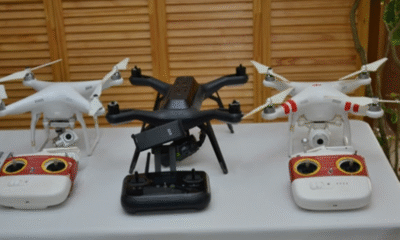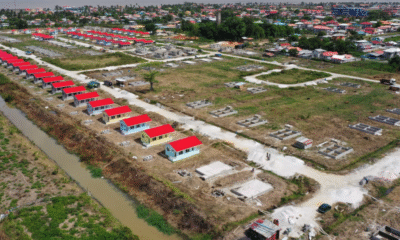July 19, 2025 – The governing People’s Progressive Party/Civic (PPP/C) plans to lower taxes on four-door pickup trucks, as part of a broader strategy to ease tax burdens, place more money into citizens’ pockets and create long-term wealth for ordinary Guyanese.
President Dr Mohamed Irfaan Ali, who is also the PPP/C’s presidential candidate for the upcoming elections, unveiled the initiative during a consultation process at the Princess Hotel in Providence, East Bank Demerara (EBD) on Wednesday.
The audience was made up of stakeholders, including members of the private sector, religious organisations, and youth representatives.
President Ali noted that after talking with citizens, the difficulty in owning vehicles emerged as a significant challenge.
To address this, “We’re going to have a special mechanism through which four-door vehicles…will come at lower taxes,” the president announced, which was met with resounding cheers. “We’re going to pursue a taxation system that is going to lower the tax burden, improve tax compliance, and put more money back in your pockets.”
The president stressed that while taxes are being lowered, Guyanese must still fulfil their responsibility to pay taxes. If this happens, more incentives can be passed on to citizens. The goal, according to President Ali, is to ensure Guyanese own more assets.
incentives can be passed on to citizens. The goal, according to President Ali, is to ensure Guyanese own more assets.
This will complement the PPP/C’s future initiatives, which include salary increases for public sector employees, increases in the old age and NIS pensions, Public Assistance, additional cash grants and affordable electricity for all consumers.
“The country must not only grow -individuals, families, businesses-every single person must grow,” the president emphasised. “The grants, the increase in salaries…those are the things that will come naturally with the People’s Progressive Party/Civic.”
The government has implemented several interventions to promote vehicle ownership, including the removal of value-added tax (VAT) on new electric vehicles in 2023.
Additional measures included the reduction of the duty on the importation of new (less than four years old) motor vehicles below 1500 cc from 45 per cent to 35 per cent, among others.
Vice President Dr. Bharat Jagdeo explained that the new tax system will help families in Guyana by rewarding hardworking people and allowing them to hold on to more of their earnings.
“It has to incentivise economic activities,” VP Jagdeo said, pointing out that industries like poultry, fisheries, rice farmers, and mining can benefit from a favourable taxation mechanism. “Every industry would [benefit] from that… because our taxation system must not penalise wealth creation, it must incentivise.”
“A digital Guyana”
The PPP/C plans to create an inclusive digital society by working on a national e-ID system to reduce bureaucracy. They will also use technology to improve health and education services and tackle traffic issues in Guyana.
“The digitalisation of Guyana is aimed at removing the bureaucracy from the system. It is enabling the system. It is aimed at removing the biases, reducing leakages in the system, improving transparency, enhancing productivity and comparativeness,” President Ali explained, noting that this strategy will catapult Guyana into the next phase of global advancement and development.
The president stated that the digital strategy should provide opportunities for rural communities, particularly for women and children.
The PPP/C party will launch its complete 2025-2030 manifesto later this month.


 Bahamas News1 week ago
Bahamas News1 week ago
 Health1 week ago
Health1 week ago
 News6 days ago
News6 days ago
 Caribbean News2 days ago
Caribbean News2 days ago
























